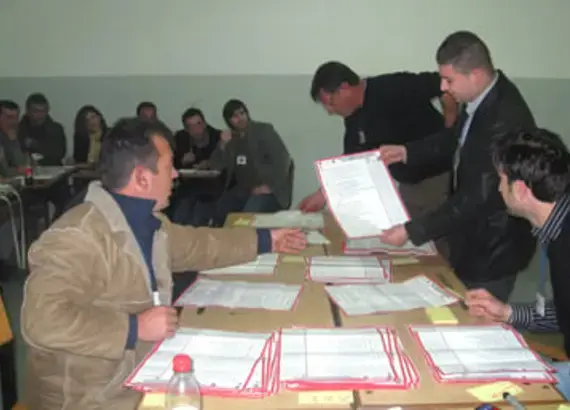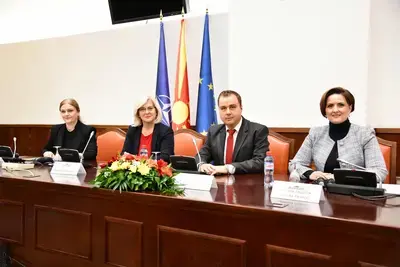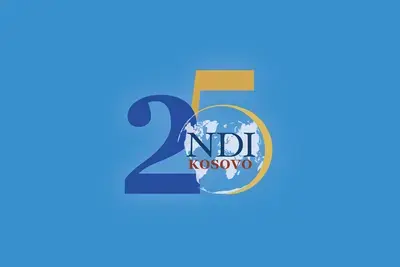
Success Story
Kosovo Elections Peaceful, Challenges Remain
Kosovo's Dec. 12 parliamentary elections were generally calm and peaceful, but some irregularities were observed and will need to be investigated more fully, according to the European Network of Election Monitoring Organizations (ENEMO), which organized an international mission to observe the vote.
The elections were the second to be held in the country since it declared independence in 2008. The first were municipal elections in 2009, which were to be followed by parliamentary elections in February 2011. However, the date was moved up after a Nov. 2 parliamentary vote of no-confidence in the current government, resulting in just a 10-day campaign period.
ENEMO fielded 12 long-term observers and 188 election day observers from 23 countries, including 37 American observers organized by NDI, who monitored 861 polling stations. The observation was supplemented by the findings of more than 26,000 accredited domestic observers from various parties and political organizations, including 4,000 non-partisan observers from Democracy in Action (DiA), the largest domestic monitoring group in the country.
 A pollworker seals a ballot box after the polls close.
A pollworker seals a ballot box after the polls close.In a preliminary statement issued the day after the voting, ENEMO said the elections "were organized in an orderly manner meeting many international standards, but procedural shortcomings and challenges remain." It noted that many recommendations from the ENEMO observation of the 2009 elections remained valid, including the need to improve voters' lists and set clear and understandable rules on what types of identification can be used to vote.
The statement also noted the high incidence of group or family voting, observed in 36 percent of polling stations, which it called a "serious breach of procedures" that shows a disregard for the secrecy of an individual's vote.
The statement cited the "questionable" turnout rates reported in some areas, particularly in Skenderaj and Gllogocv, where turnout figures were 94 percent and 87 percent respectively. Turnout figures in the rest of the country were around 50 percent, and the high turnout could be a sign of multiple voting or ballot box stuffing.
Conversely, it said that in the largely Serb-populated North, "the continued complexity of the political situation resulted in a tense election environment where those seeking to vote were highly restricted in their access to the polls."
ENEMO urged all parties who questioned the validity of the process to register complaints with the Elections Complaints and Appeals Panel and respect its findings.
"These elections mark a very important occasion in Kosovo's democratic development,” said Robert Benjamin, NDI senior associate and regional director for Central and Eastern Europe, who spoke at ENEMO's Dec. 13 press conference. "The degree to which the will of thousands of voters has been genuinely expressed and faithfully respected will determine the impact of these elections on Kosovo's democratic course."
Related:
- ENEMO's full preliminary statement»
- Public opinion in Kosovo, baseline survey results, November 2010»
- Kosovars celebrate democracy day with greater citizen engagement»
- Independent monitors conclude Kyrgyzstan parliamentary elections were democratic and transparent»
- Observer groups give generally positive report on Ukraine presidential runoff»
Pictured above: Poll workers count ballots as monitors observe the process.
Published December 16, 2010



